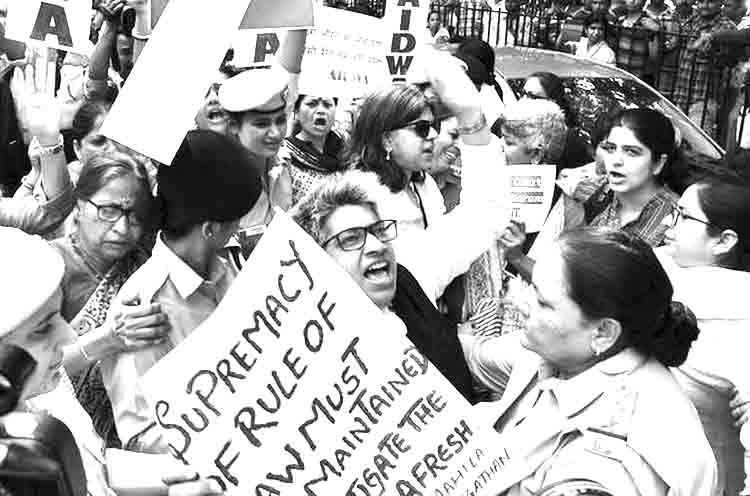
THE crisis that has gripped the Supreme Court in recent times has been further aggravated by the way in which the Chief Justice of India Ranjan Gogoi and the Supreme Court have handled the accusation of sexual harassment leveled against the CJI himself in a written complaint made by a former Supreme Court employee, copies of which were given to all members of the Court. As a consequence, every effort should have been made to ensure complete transparency in the matter. But this was precisely what was not done.
The CJI himself sat on judgment in the matter in a special bench along with two brother judges thereby flouting every principle of natural justice. This bench went on to not only pronounce the CJI innocent but also to accuse the complainant of being part of a conspiracy by vested interests to paralyse the functioning of the Supreme Court. Both procedure and pronouncements invited much criticism.
Subsequently, an ‘In-house committee’ was set up to look into the charges since the CJI and the Supreme Court do not strictly fall under the purview of the Prevention Against Sexual Harassment in the Workplace Act. The rules governing such a committee pre-date the POSH Act by more than a decade and could have been suitably modified in conformity with the many legal and other changes that have been made in the way in which women’s rights in workplaces are now interpreted and ensured.
Unfortunately, this was not done and, instead of extending every kind of assistance to the complainant and conducting the enquiry in the most fair and transparent fashion possible, no ‘outside’ person was appointed a member of the committee and the complainant was not allowed to take a ‘supporter’ with her. The rules permit these steps. During the trial, no list of witnesses was made available to her and her request to have a lawyer and to properly record the proceedings was turned down. Therefore, citing her extreme discomfiture and sense of intimidation, she withdrew from the enquiry on the third day.
The enquiry continued ex parte, a procedure that courts themselves have held objectionable and made subject to further judicial review. On the fourth day, the CJI was declared exonerated on all counts. The complainant, however, was denied a copy of the committee’s report. The process has further tarnished the reputation of the highest court and the CJI.
The sequence of events has left senior lawyers, jurists, women activists and citizens shocked. Their faith in the court of last resort and its head have been severely shaken.
It is notable that the inquiry panel did not heed the views conveyed by Justice D Y Chandrachud, a sitting judge of the Court. In a letter to Justice Bobde, the head of the panel, he had suggested that steps be taken to remedy the grievances of the complainant. He had advised the appointment of an external member and that a lawyer assist the complainant. He also cautioned against the case being dealt with ex parte.
The present CJI should be reminded of what a former CJI, Justice J S Verma, had said: ‘However high you may be, you are not above the law.’
The CJI and Supreme Court need to heed those words and take steps that will take the court out of the crises in which it is currently mired.
(May 8, 2019)


